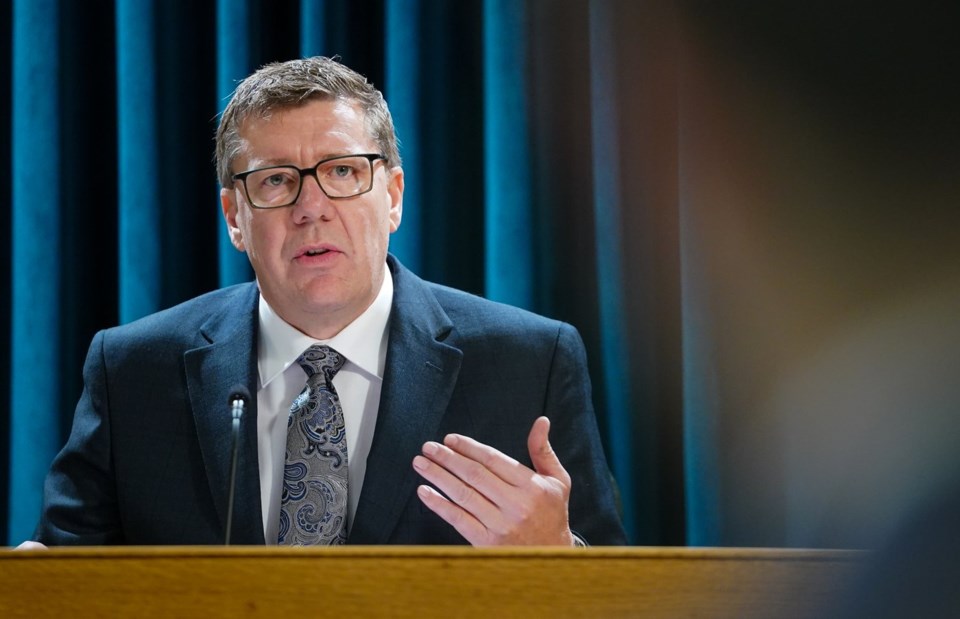EDMONTON — Leaders of the Prairie provinces are urging Canada to act on American concerns over illegal cross-border traffic of people and drugs to stave off the looming threat of 25 per cent tariffs.
Alberta Premier Danielle Smith, Saskatchewan Premier Scott Moe, and Manitoba Premier Wab Kinew said Tuesday that Canada must do better to address the concerns of its largest trading partner.
Incoming U.S. president Donald Trump promised Monday to impose the tariffs on his first day in office in January. He said he would keep the tariffs in place until Canada and Mexico stop illegal border crossings and prevent drugs such as fentanyl from entering the U.S.
Kinew said 25 per cent tariffs would mean a recession for his province and that Canada needs to show the new U.S. administration it's serious about security and tackling the drug crisis.
He said it begins with Canada’s pledge to NATO allies to spend two per cent of its gross domestic product on defence by 2032.
"First and foremost, (it’s about) hitting that target of two per cent spending on defence,” said Kinew.
“That gets us in the game just to be taken seriously as a security partner with the U.S. If we don't do it, it's going to become a trade problem."
In a video posted to social media, Alberta's premier said Canada needs to reach its pledged commitment on defence.
"If their trade partners are looking to be free riders on American security interests, that's also going to harm the relationship," Smith said, adding, "You also have to take seriously the asylum seekers."
Smith added in another post that the incoming Trump administration has "valid concerns related to illegal activities" at the border.
The U.S. is Alberta’s largest trading partner, with $188 billion in bilateral trade in 2023. Last year, energy products accounted for more than 80 per cent of that trade, or about $134 billion.
Smith said the vast majority of Alberta's energy exports to the U.S. are "delivered through secure and safe pipelines," which "do not in any way contribute to these illegal activities."
In Saskatchewan, Moe said he understands Trump’s position on border security.
“As Canadians, we can all benefit from additional border security stopping the flow of illegal drugs and migrants across our borders,” he said in a social media post.
He said his province plans to use all levers at its disposal to stop the tariffs and will approach the U.S. directly.
Moe added the proposed tariffs would hurt Saskatchewan’s export-based economy and drive up prices on both sides of the border.
Speaking to CTV early Tuesday, Moe said his government would represent Saskatchewan interests alongside the federal government, fellow premiers "and on our own when necessary."
"We have a strong relationship with a number of the administration that President Trump has appointed," Moe said.
In 2023, Saskatchewan’s exports to the U.S. amounted to almost $27 billion after hitting a record high of $29 billion in 2022. Its top exports include crude oil, potash and canola.
Prime Minister Justin Trudeau has convened an emergency meeting for Wednesday with the country's premiers to discuss the tariffs.
This report by The Canadian Press was first published Nov. 26, 2024.
— With files from Jeremy Simes in Regina and Brittany Hobson in Winnipeg
Lisa Johnson, The Canadian Press



